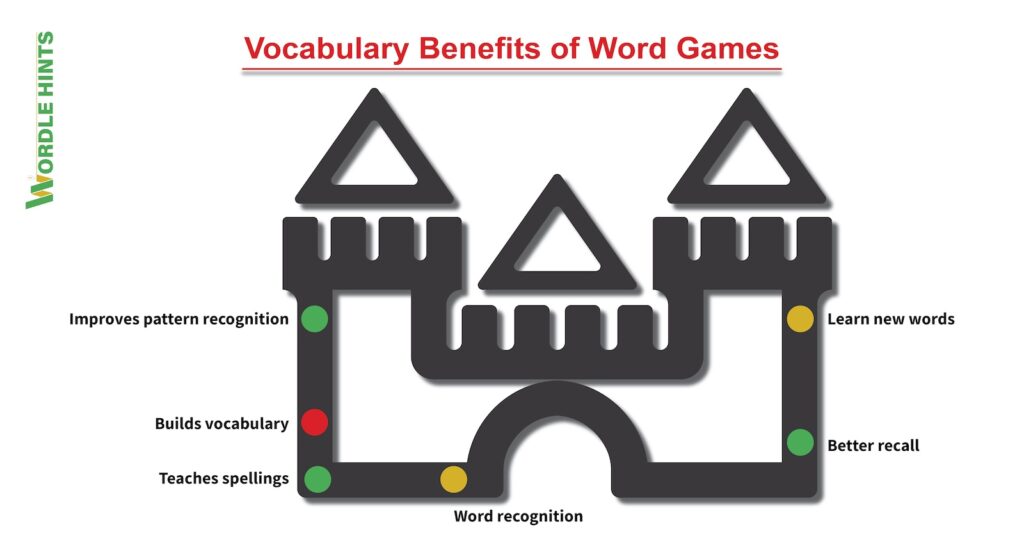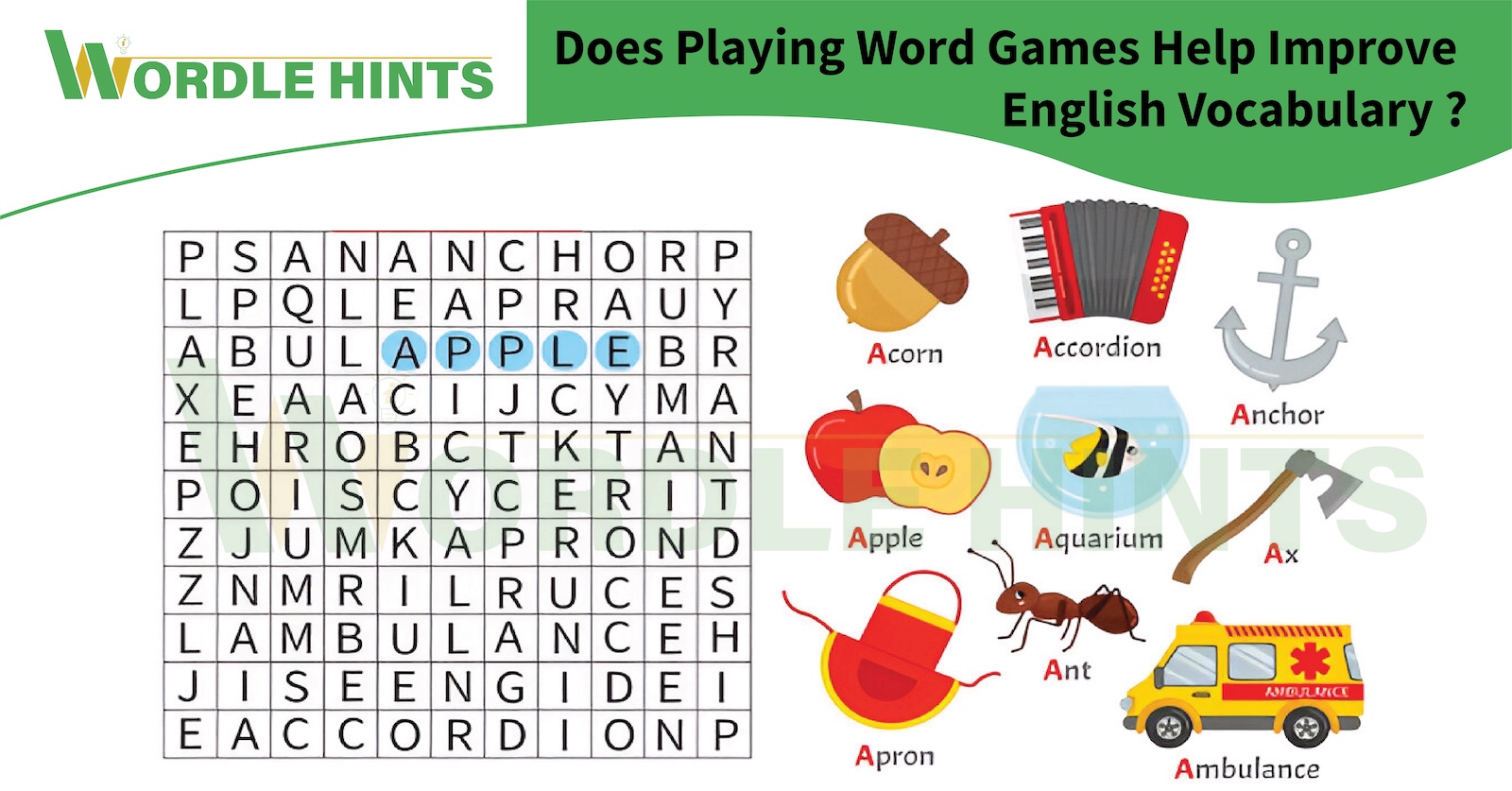Word games improve vocabulary by reinforcing spelling, introducing new words, and strengthening recall. Games like Wordle and Boggle offer daily word exposure. They promote learning by requiring repetition, deductive thinking, and word analysis.
How do word games improve vocabulary?
Word games build vocabulary through repeated word exposure. They engage our logic and language recognition. Each guess challenges us to retrieve and apply known words. According to the Oxford English Dictionary, repeated exposure to words increases word retention.
What skills do vocabulary-based word games support?
Vocabulary-based word games support skills like spelling, memory, and pattern recognition. Word games improve our ability to decode and reconstruct words. This helps strengthen word structure awareness and fluency. A study in Applied Cognitive Psychology (2020) found that word puzzle games improve lexical access speed.
Why is Wordle effective for vocabulary development?
Wordle strengthens spelling and recall of 5-letter words. Words like vivid, grief, or quilt are guessed using letter logic. Players refine their guess strategy with each new puzzle. Reviewing Wordle hints or used Wordle answers reveals uncommon or forgotten words. This feedback loop supports vocabulary retention and daily learning.
How do correct letter positions aid learning?
Wordle gives feedback on each letter’s position. Seeing yellow or green tiles helps us recall and reorder letters. This mimics spelling practice and strengthens word form memory. It improves both word decoding and encoding fluency.
How does Boggle help expand word knowledge?
Boggle promotes rapid word recognition and root word building. Players scan grids to form words like tame, rate, or darts. This improves the ability to quickly recognize and form words from individual letters. It rewards speed, creativity, and spelling accuracy under pressure.
What role does Hangman play in vocabulary learning?
Hangman builds spelling and deduction skills. We guess missing letters in words like banana, symbol, or ignite. This reveals word structure and reinforces correct spelling sequences. It helps learners anticipate word forms logically.
Are word games useful for English language learners?
Yes, they make vocabulary learning active and engaging. Games like Hangman and Wordle allow trial and error without academic pressure. Word guessing strengthens recall and promotes retention. A 2021 TESOL study found that word games enhance ESL learners’ receptive vocabulary by 22%.

Do word games benefit children’s vocabulary growth?
Yes, they support phonics, spelling, and recognition. Games like Hangman and Boggle introduce early-level words such as cat, rain, tree, or milk. These patterns help with decoding and reading fluency. There are variants of Wordle for kids such as Spellie and Wordly for Kids.
Can adults improve vocabulary with word games?
Yes, especially with games like Wordle and crosswords. They offer a focused, daily challenge. Adults learn low-frequency words like acrid, torso, or swirl. Research in Frontiers in Psychology (2020) confirmed that daily digital word play improves vocabulary recall in adults.
How do word games reinforce spelling accuracy?
Word games reinforce spelling accuracy by requiring correct spelling to complete each challenge. Misspellings lead to failed guesses. For example, Wordle trains us to internalize letter order and common suffixes. Example: noticing the -ING endings in bring, sting, or fling.
What types of vocabulary does Wordle expose us to?
Wordle exposes players to mid-frequency and rare five-letter words. Examples include syrup, algae, vapor, or eerie. These words expand vocabulary beyond common everyday terms. They help us recognize uncommon spellings and syllables.
Can daily word games lead to lasting vocabulary gains?
Yes, daily exposure builds long-term word memory. Consistency improves retrieval and confidence. Short play sessions, when done consistently, help the brain reinforce new vocabulary through repeated exposure. Linguistic research shows that spaced repetition solidifies vocabulary in long-term memory.
Are digital word games as effective as print-based ones?
Yes, digital games are equally or more effective because they provide instant feedback and greater accessibility. They offer daily updates, feedback, and accessible formats. Wordle and similar apps deliver regular, vocabulary-rich interaction. These games reach learners through habit and simplicity.
How often should we play word games for vocabulary improvement?
Play daily or several times weekly for best results. Even 5–10 minutes a day supports retention. Consistency matters more than session length. Make it a routine to improve fluency over time.
Which games help most with vocabulary building?
Games like Wordle and Boggle, which offer real-time feedback and reinforce spelling logic, are most effective.
| Game | Vocabulary Skill Strengthened |
|---|---|
| Wordle | Five-letter recall, deduction, spelling |
| Boggle | Rapid word formation, letter scanning |
| Hangman | Partial word recognition, spelling logic |
| Wordscapes | Word creation and pattern building |
What’s the best way to track vocabulary growth from games?
Record unknown words and review meanings. Keep a word list, flashcards, or digital notebook. Revisit tricky words weekly to reinforce memory.
Can word games replace vocabulary lessons?
No, but they reinforce structured language learning. Use games as supplements, not replacements. They enhance formal reading and study with active recall and challenge.
Do word games improve both active and passive vocabulary?
Yes, they support recognition and usage. Passive vocabulary grows through exposure. Active vocabulary improves as players apply words to win.
Are word games helpful for all age groups?
Yes, word games support vocabulary across all ages. They can be adapted by changing word difficulty, limiting guess attempts, or using visuals for different reading levels. Children learn basics; adults expand complexity.
Do word games help with academic language growth?
Yes, they expose players to academic and descriptive terms. Words like infer, lapse, or refer support school-based vocabulary. Games reinforce root word understanding and syllable awareness.
Conclusion
Word games like Wordle improve vocabulary by engaging recall, letter placement, and strategic guessing. Guessing five-letter answers and reviewing past puzzles reinforce both new and known words. Hints, patterns, and trial-based learning create meaningful and lasting benefits through word games.

